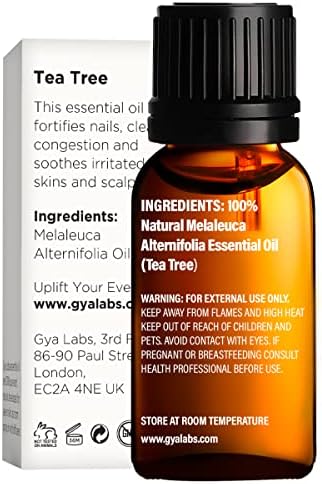Tea Tree For Toothache

The soothing power of tea tree oil, renowned for its antimicrobial properties and versatility in addressing various health concerns, including the infamous toothache. Toothaches, a common dental issue that can range from a dull ache to a sharp, debilitating pain, often require immediate attention to identify and treat the underlying cause. While tea tree oil is not a replacement for professional dental care, it can serve as a complementary remedy to help alleviate toothache symptoms. Let’s delve into the potential benefits and uses of tea tree oil for toothaches, along with a comprehensive guide on how to incorporate it into your oral health routine.
Understanding Toothaches
Before exploring the role of tea tree oil, it’s essential to understand the common causes of toothaches. These can include:
- Tooth Decay: Bacterial accumulation leading to cavities.
- Gum Disease: Inflammation of the gums, which can expose roots and cause pain.
- Tooth Fracture: Cracks or breaks in teeth.
- Dental Work: Recent fillings, crowns, or other dental procedures.
- Sinus Pressure: Sometimes, sinus infections can radiate pain to the teeth.
The Role of Tea Tree Oil
Tea tree oil, extracted from the leaves of Melaleuca alternifolia, is celebrated for its antifungal, antibacterial, and antiviral properties. These attributes make it a potential candidate for reducing the bacterial load in the mouth, which is a common factor in many toothache cases.
Key Benefits for Toothaches:
- Antimicrobial Action: Helps in reducing the bacteria that may be causing the toothache.
- Anti-inflammatory: May help in reducing swelling and pain.
- Natural and Non-invasive: Offers a less intrusive method compared to some dental procedures.
Using Tea Tree Oil for Toothaches
While tea tree oil can be beneficial, it’s crucial to use it correctly to avoid any adverse effects. Here are some guidelines:
- Dilution is Key: Tea tree oil is potent and must be diluted with a carrier oil (like coconut or olive oil) before use. A common dilution ratio is 1-3% tea tree oil to the carrier oil.
- Topical Application: Apply the diluted oil directly to the affected tooth and gum with a cotton swab. Be cautious not to ingest it.
- Mouthwash Addition: Add a few drops of tea tree oil to your mouthwash for an antimicrobial boost. Ensure it’s properly diluted to avoid burning your mouth tissues.
- Consult a Dentist: Before using tea tree oil, especially if you’re experiencing a severe toothache, consult with a dentist to diagnose the underlying issue.
Precautions and Considerations
- Allergic Reactions: Some individuals might be allergic to tea tree oil. Perform a patch test on your skin before using it in your mouth.
- Pregnancy and Breastfeeding: There’s limited research on the safety of tea tree oil during pregnancy and breastfeeding. Consult your healthcare provider before use.
- Children: Due to the potential for allergic reactions and the risk of ingestion, use tea tree oil with caution in children, and always under adult supervision.
Combining Tea Tree Oil with Other Remedies
For a holistic approach to managing toothaches, consider combining tea tree oil with other natural remedies:
- Salt Water Rinse: Helps reduce swelling and kill bacteria.
- Cold Compress: Applies cold temperature to the outside of your cheek near the aching tooth to numb the pain.
- Over-the-counter Pain Relievers: Under the guidance of a dentist or healthcare provider, for temporary relief.
Conclusion
Tea tree oil, with its antimicrobial and anti-inflammatory properties, can serve as a supportive measure in alleviating toothache symptoms. However, it’s vital to address the root cause of the toothache through proper dental care and consultation with a healthcare professional. By understanding the potential benefits and limitations of tea tree oil, you can make informed decisions about incorporating it into your oral health regimen, ultimately fostering a healthier and more resilient smile.
Can tea tree oil replace regular dental care for toothaches?
+No, tea tree oil should not replace regular dental care. It’s a complementary remedy that can help alleviate symptoms but does not address the underlying cause of toothaches, which requires professional dental evaluation and treatment.
How do I safely store tea tree oil at home?
+Store tea tree oil in a cool, dark place, away from children and pets. Always keep it in its original container and tightly sealed to maintain its potency and safety.
Can I use tea tree oil if I have sensitive teeth or gums?
+Yes, but with caution. Start with a very diluted solution and apply it to a small area first to check for any sensitivity or allergic reactions. It’s also recommended to consult with your dentist before using tea tree oil, especially if you have sensitive teeth or gums.

